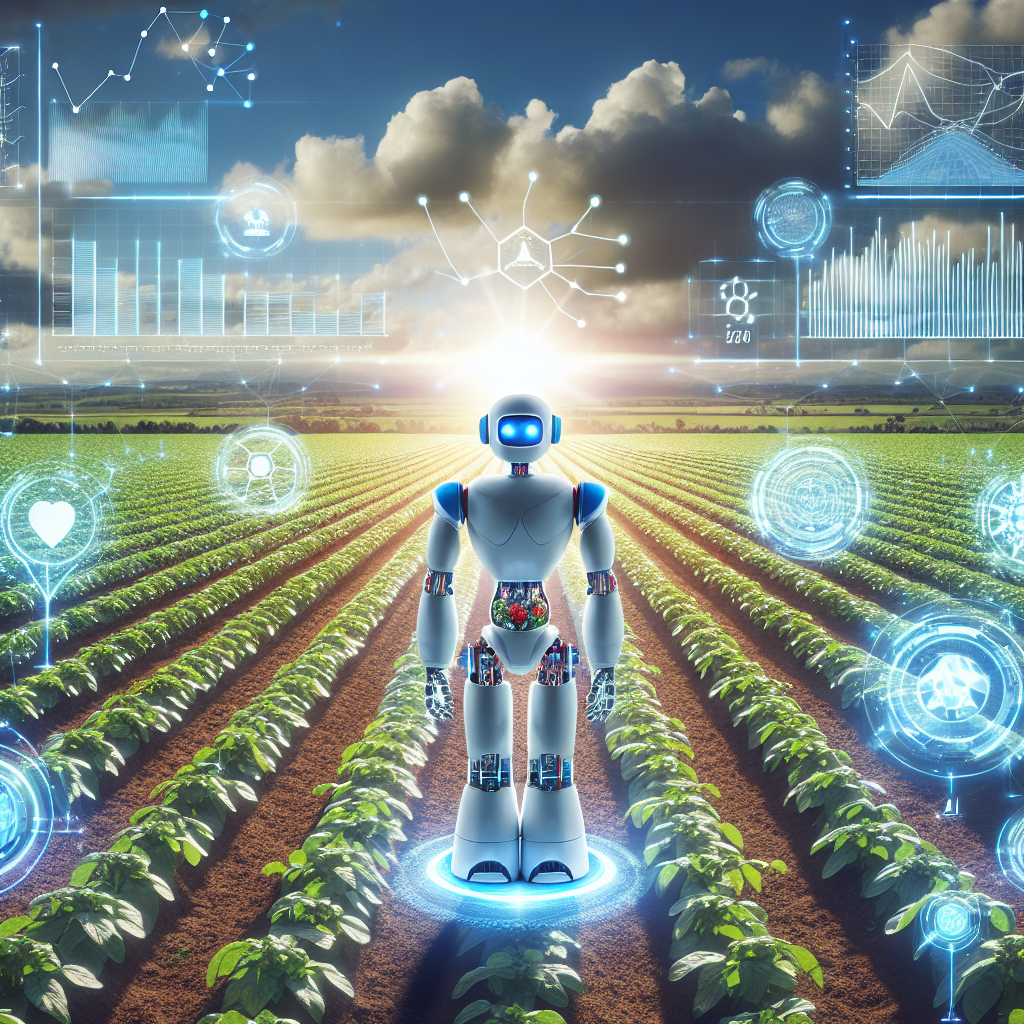Enhancing Crop Quality with AI-driven Solutions
In recent years, the agriculture industry has witnessed a significant transformation with the integration of artificial intelligence (AI) technologies. AI-driven solutions have revolutionized the way crops are grown, monitored, and harvested, leading to improved crop quality and increased yields. From precision agriculture to predictive analytics, AI is playing a crucial role in optimizing farming practices and ensuring food security for a growing global population.
AI-driven solutions in agriculture encompass a wide range of technologies, including machine learning, computer vision, and predictive analytics. These technologies enable farmers to make data-driven decisions, automate processes, and optimize resource allocation, resulting in higher crop quality and increased productivity. In this article, we will explore how AI-driven solutions are enhancing crop quality and revolutionizing the agriculture industry.
Precision Agriculture: Optimizing Farming Practices
One of the key applications of AI in agriculture is precision agriculture, which involves the use of AI-driven solutions to optimize farming practices. By leveraging data from sensors, drones, and satellites, AI algorithms can analyze soil conditions, weather patterns, and crop health to provide farmers with real-time insights and recommendations. This enables farmers to make informed decisions about irrigation, fertilization, and pest control, leading to more efficient use of resources and improved crop quality.
For example, AI-driven solutions can analyze satellite images to identify areas of the field that require additional irrigation or fertilization. By applying resources only where they are needed, farmers can reduce waste and optimize crop growth. AI algorithms can also predict pest outbreaks based on weather patterns and historical data, enabling farmers to take proactive measures to protect their crops.
Predictive Analytics: Forecasting Crop Yields
Another important application of AI in agriculture is predictive analytics, which involves using AI algorithms to forecast crop yields and optimize harvesting schedules. By analyzing historical data, weather patterns, and crop health metrics, AI algorithms can predict crop yields with a high degree of accuracy. This enables farmers to plan their harvesting schedules more effectively, ensuring that crops are harvested at the optimal time for maximum quality and yield.
In addition to forecasting crop yields, AI-driven solutions can also optimize post-harvest processes, such as storage and transportation. By analyzing data on storage conditions, temperature, and humidity, AI algorithms can recommend the best practices for preserving crop quality and minimizing spoilage. This not only ensures that crops reach the market in optimal condition but also reduces food waste and improves sustainability.
Crop Monitoring: Enhancing Crop Health
AI-driven solutions are also revolutionizing crop monitoring, enabling farmers to track crop health and identify potential issues before they become serious problems. By using sensors, drones, and computer vision technology, AI algorithms can analyze crop images and detect signs of disease, nutrient deficiencies, or pest infestations. This allows farmers to take timely action to protect their crops and ensure high-quality yields.
For example, AI algorithms can analyze drone images to identify areas of the field that show signs of stress or disease. By pinpointing these areas early on, farmers can take targeted measures, such as applying pesticides or adjusting irrigation levels, to prevent the spread of disease and preserve crop quality. AI-driven solutions can also monitor crop growth over time, providing farmers with valuable insights into plant health and development.
Frequently Asked Questions
Q: How can AI-driven solutions improve crop quality?
A: AI-driven solutions can improve crop quality by optimizing farming practices, forecasting crop yields, and enhancing crop monitoring. By analyzing data from sensors, drones, and satellites, AI algorithms can provide farmers with real-time insights and recommendations for more efficient resource allocation, better pest control, and timely interventions to protect crop health.
Q: What are the benefits of using AI in agriculture?
A: The benefits of using AI in agriculture include increased productivity, improved crop quality, reduced resource waste, and enhanced sustainability. AI-driven solutions enable farmers to make data-driven decisions, automate processes, and optimize resource allocation, leading to higher yields and better crop quality.
Q: How can farmers implement AI-driven solutions on their farms?
A: Farmers can implement AI-driven solutions on their farms by partnering with agtech companies that specialize in AI technologies. These companies can provide farmers with AI-powered tools, such as sensors, drones, and predictive analytics software, to optimize farming practices and enhance crop quality. Additionally, farmers can attend training sessions and workshops to learn how to use AI technologies effectively on their farms.
Q: What are some challenges associated with implementing AI in agriculture?
A: Some challenges associated with implementing AI in agriculture include the high cost of AI technologies, the need for reliable internet connectivity in rural areas, and the lack of technical expertise among farmers. Additionally, concerns about data privacy and cybersecurity may deter some farmers from adopting AI-driven solutions. However, with the right support and training, farmers can overcome these challenges and harness the full potential of AI in agriculture.
In conclusion, AI-driven solutions are revolutionizing the agriculture industry and enhancing crop quality in innovative ways. From precision agriculture to predictive analytics, AI technologies are enabling farmers to optimize farming practices, forecast crop yields, and monitor crop health with unprecedented accuracy. By harnessing the power of AI, farmers can improve productivity, reduce waste, and ensure food security for a growing global population. As AI continues to evolve, its potential to transform agriculture and enhance crop quality will only continue to grow.

